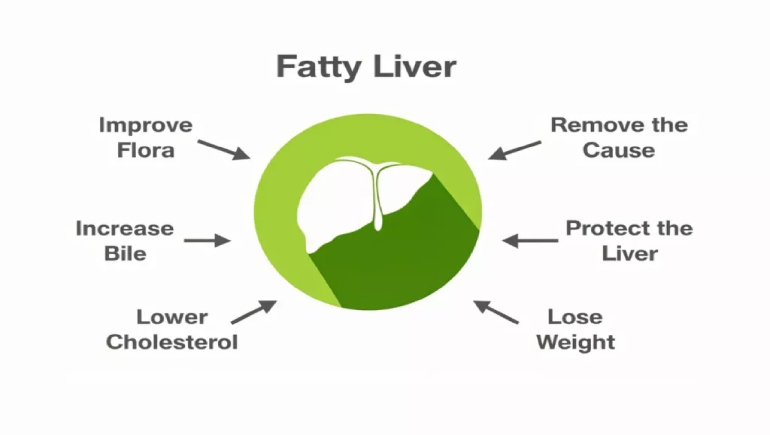
Fatty liver disease, medically known as hepatic steatosis, is a growing global health issue where excess fat builds up in liver cells. This condition, which includes Non-Alcoholic Fatty Liver Disease (NAFLD) and Alcoholic Fatty Liver Disease (AFLD), can progress to serious complications like inflammation, fibrosis, or cirrhosis if left untreated. Fortunately, in its early stages, fatty liver is reversible, especially through natural methods such as diet and lifestyle changes. Here’s what experts suggest to help you restore liver health naturally.
Start by focusing on whole foods that are nutrient-dense and support liver detoxification. Incorporate plenty of vegetables like leafy greens, broccoli, and cauliflower, as well as fruits such as apples and berries. Whole grains like brown rice, oats, and quinoa, along with legumes and lentils, should be daily staples. These foods are rich in fiber, antioxidants, and vitamins that help reduce liver fat and inflammation.
Refined sugars and carbs are a major contributor to fatty liver, especially those containing high-fructose corn syrup. Eliminate sodas, pastries, white bread, and sugary cereals, which cause rapid spikes in blood sugar and increase fat storage in the liver. Instead, choose complex carbohydrates with a low glycemic index to maintain energy without overloading the liver.
Not all fats are created equal. Healthy fats—like those found in avocados, olive oil, fatty fish (like salmon), and nuts—help reduce liver inflammation and improve lipid profiles. At the same time, avoid harmful trans fats and saturated fats from processed meats, fried foods, and fast food, which can worsen liver damage.
A fiber-rich diet supports digestion, promotes satiety, and helps regulate blood sugar—all important factors for liver health. Aim for 25–35 grams of fiber per day from sources like whole grains, beans, vegetables, fruits, flaxseeds, and chia seeds. Soluble fiber also binds to fat and cholesterol in the digestive system, helping reduce liver fat content.
Antioxidants play a vital role in protecting liver cells from oxidative stress. Include foods such as green tea, turmeric (especially curcumin), garlic, spinach, kale, and berries in your diet. These help fight inflammation and may slow or reverse fatty liver progression.
Alongside a clean, liver-friendly diet, regular lifestyle practices are key. Engage in 30–45 minutes of physical activity at least five days a week to promote fat burning. Drink at least 2–3 liters of water daily to support detoxification. Eliminate alcohol entirely, as even small amounts can exacerbate fatty liver. Aim for a weight loss of 5–10% if overweight, which is clinically proven to reduce liver fat. If you have diabetes or insulin resistance, keeping blood sugar under control is essential to prevent liver damage.
Reversing fatty liver naturally is not only possible—it’s sustainable. By adopting an expert-backed diet rich in whole foods, healthy fats, fiber, and antioxidants, and combining it with consistent exercise, hydration, and lifestyle discipline, you can dramatically improve your liver health. Always consult a healthcare professional or nutritionist to tailor these recommendations to your personal needs, especially if you have an existing medical condition.



-112x63.27.webp)




-132x74.57.webp)



Comments
There are no comments for this Article.